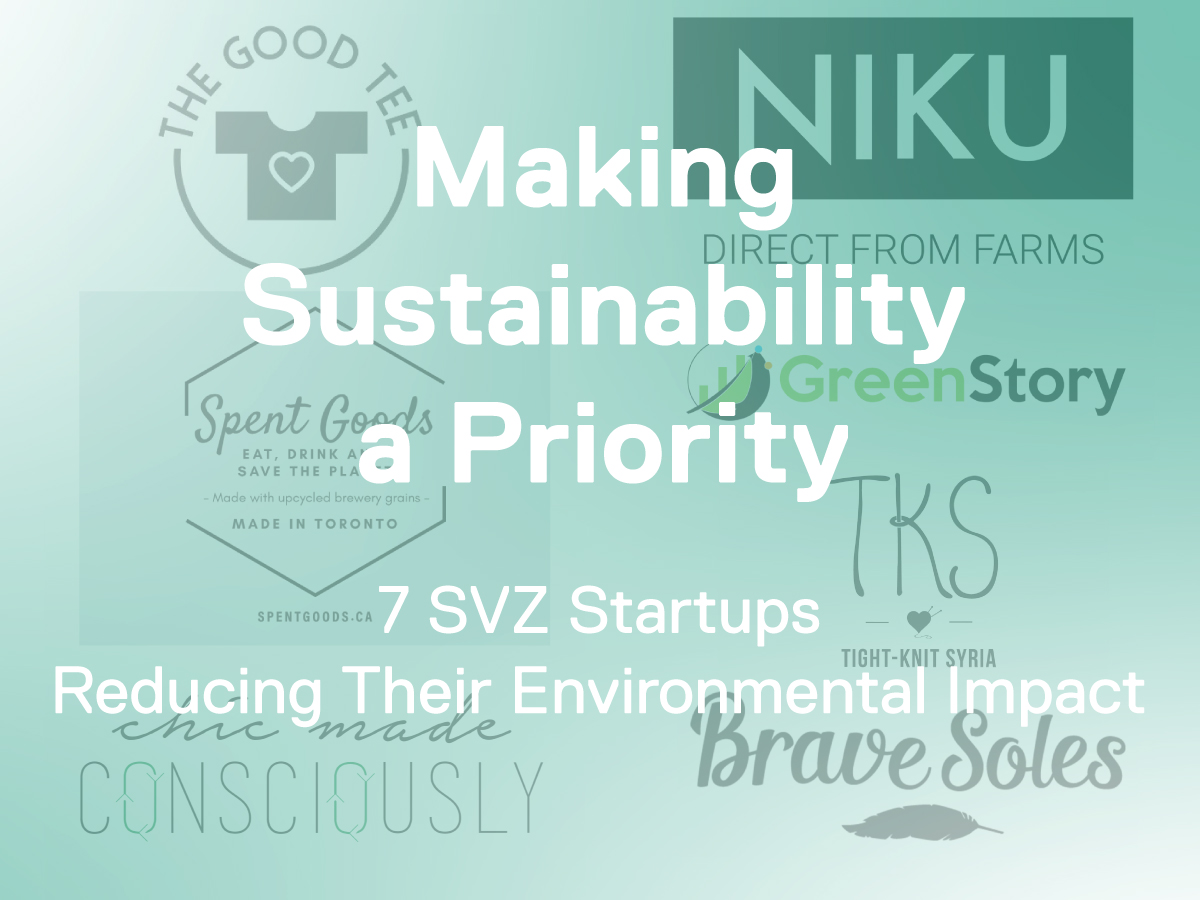Meet the SVZ's Sustainable Startups
July 27th, 2021
By: Annemarie Cutruzzola
Plastic Free July (external link) is a month dedicated to addressing a significant part of our environmental issues – plastic waste. Climate change is not backing down anytime soon, so as sustainability continues to be at the forefront of our priorities, we need innovative ventures that continue to address this problem from all angles.
In the past year, we've incubated five new ventures that prioritize sustinability. Whether it's finding a zero-waste solution for takeout containters or gift-wrap, producing sustainable pet food, holding the cosmetic industry accountable, or developing plastic-degrading microbes, these SVZ ventures know how important it is to make sustainability a top priority.
Inwit
Single-use plastics are a significant part of the waste problem we have today. The takeout industry is a large contributor to single-use plastics. Single-use takeout containers waste finite resources, pollute our lakes and oceans, and endanger vital ecosystems and human health. With over 37 million Canadians, the takeout industry is generating over 1 billion single-use takeout containers annually, which end up in landfills or contaminating our Blue Bin program, since less than 11% of plastic actually gets recycled in Canada.
Inwit is Toronto’s first Zero Waste Food App and an innovative solution to single-use waste. They partner with restaurants in Toronto, providing them with reusable containers, contactless return stations, and training. Once returned by app users, the restaurant partners wash, sanitize and place the containers back in circulation, just like any regular dishware!
"Inwit was born from a passion to inspire others to take climate action together, slowly, imperfectly, but now! At Inwit, we call ourselves environmentalists by accident because one day, something made us realize that all that we care about was interconnected with a healthy planet. That was the day we started to question our daily choices. "
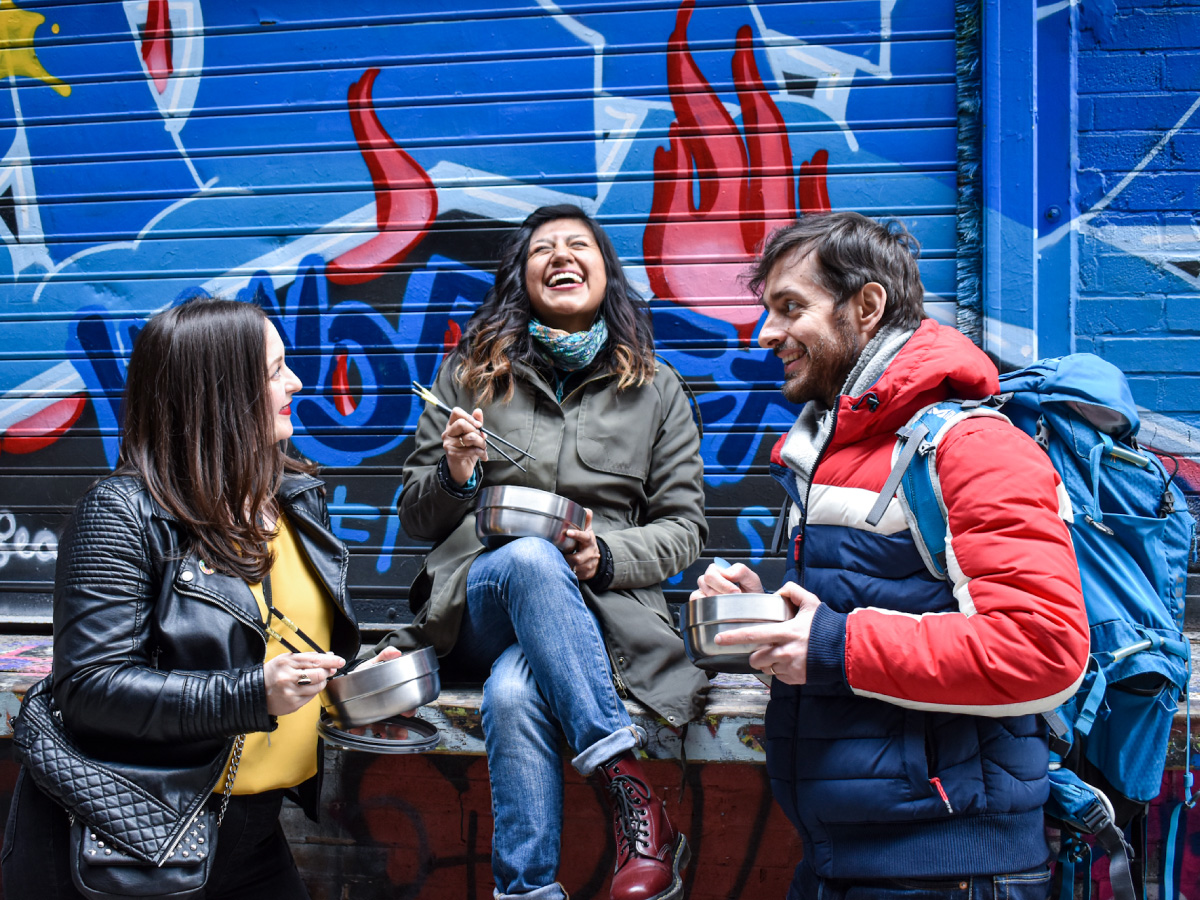
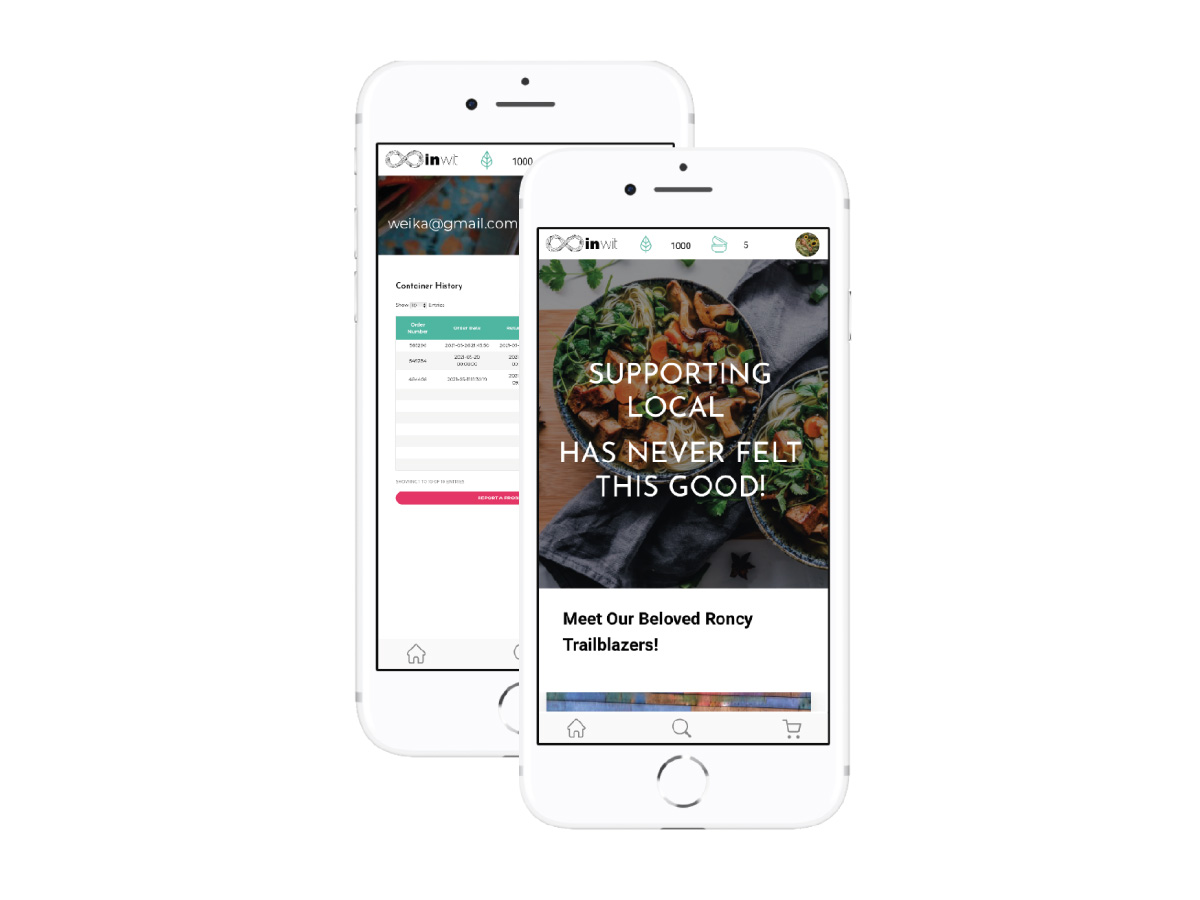
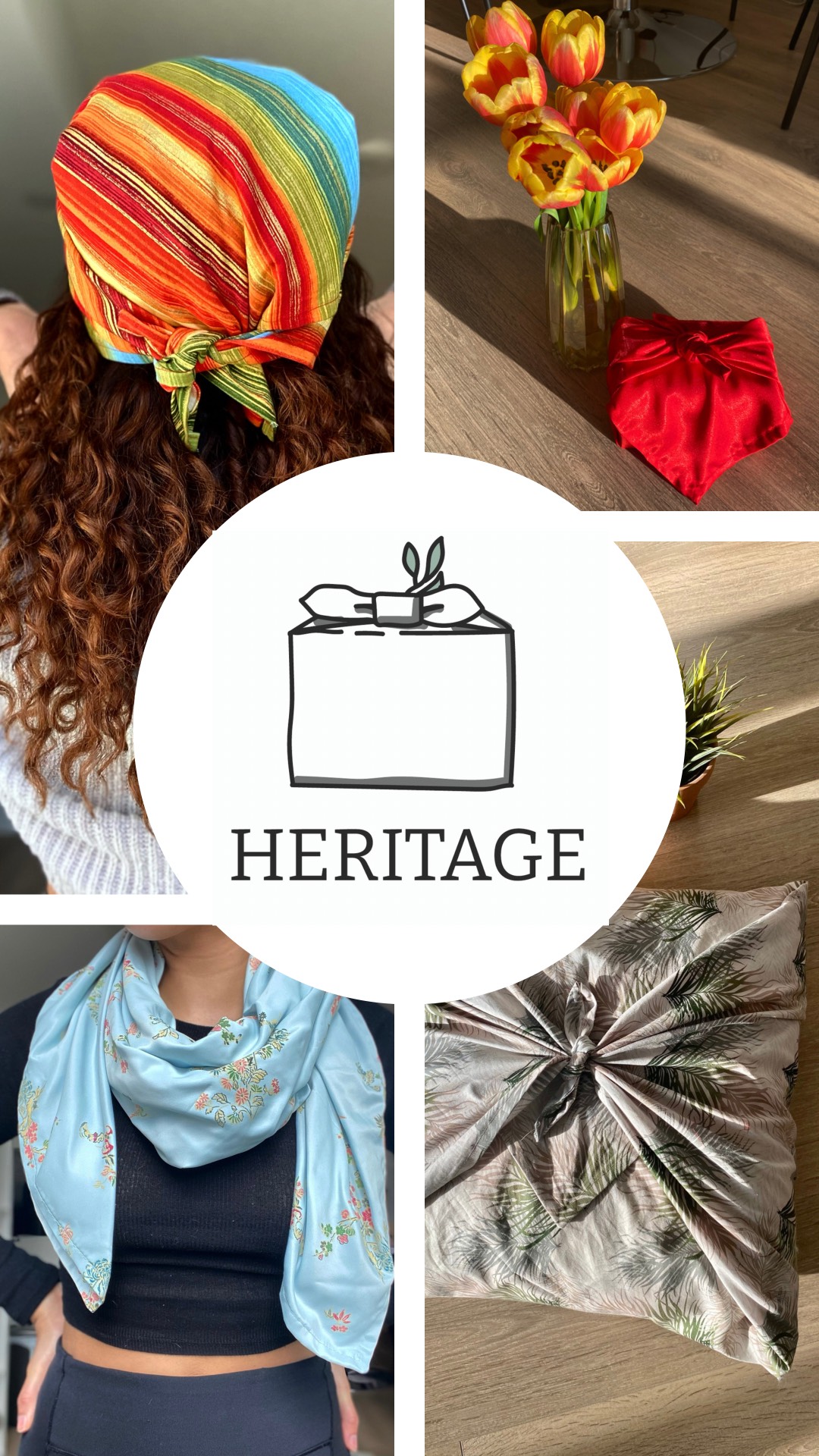
Heritage Furoshiki
Did you know that the waste per person increases by up to 50% during the winter holiday season in Canada? A giant factor that contributes to this increase is disposable gift-wrap. Because gift-wrap is often made of hard to recycle materials such as foil, glitter or laminated plastic, it ends up taking up valuable landfill space, not to mention a large amount of money, energy and resources.
Heritage Furoshiki provides beautiful and multi-functional cloth alternatives using the ancient Japanese craft of furoshiki. All of their fabrics are ethically sourced, digitally printed, and made to order to minimize ink and textile waste. They also donate all unused fabric scraps back to the factory in order to be recycled and reused! Heritage Furoshiki can be repurposed in countless ways, so when you purchase Heritage Furoshiki, you purchase a gift and gift-wrap all in one.
“Gift-giving is a universal heritage practiced by communities all over the world, and this means that even the small changes we make individually can reap massive benefits. The most beautiful gift of all would be the collective steps toward sustainability taken today to create a better world for tomorrow."
Decomp
Disposing of plastic waste continues to pose a huge problem for us. Since 1950, only 9% of plastic waste has been recycled meanwhile 12% has been incinerated. The remaining 79% is accumulating in landfills, where it can take anywhere from 400 to 1000 years to fully decompose. The production of plastic is expected to double by 2050, and the consequences of greenhouse gas emissions and climate change are serious.
Decomp is seeking to establish an alternative method of plastic waste disposal. Their bioreactors create ideal conditions for plastic degrading microbes to grow, and allows them to degrade plastic in weeks – rather than hundreds of years. Their solution accomodates all kinds of plastic waste, contaminated or not, and does not create any negative effects on environmental or human health.
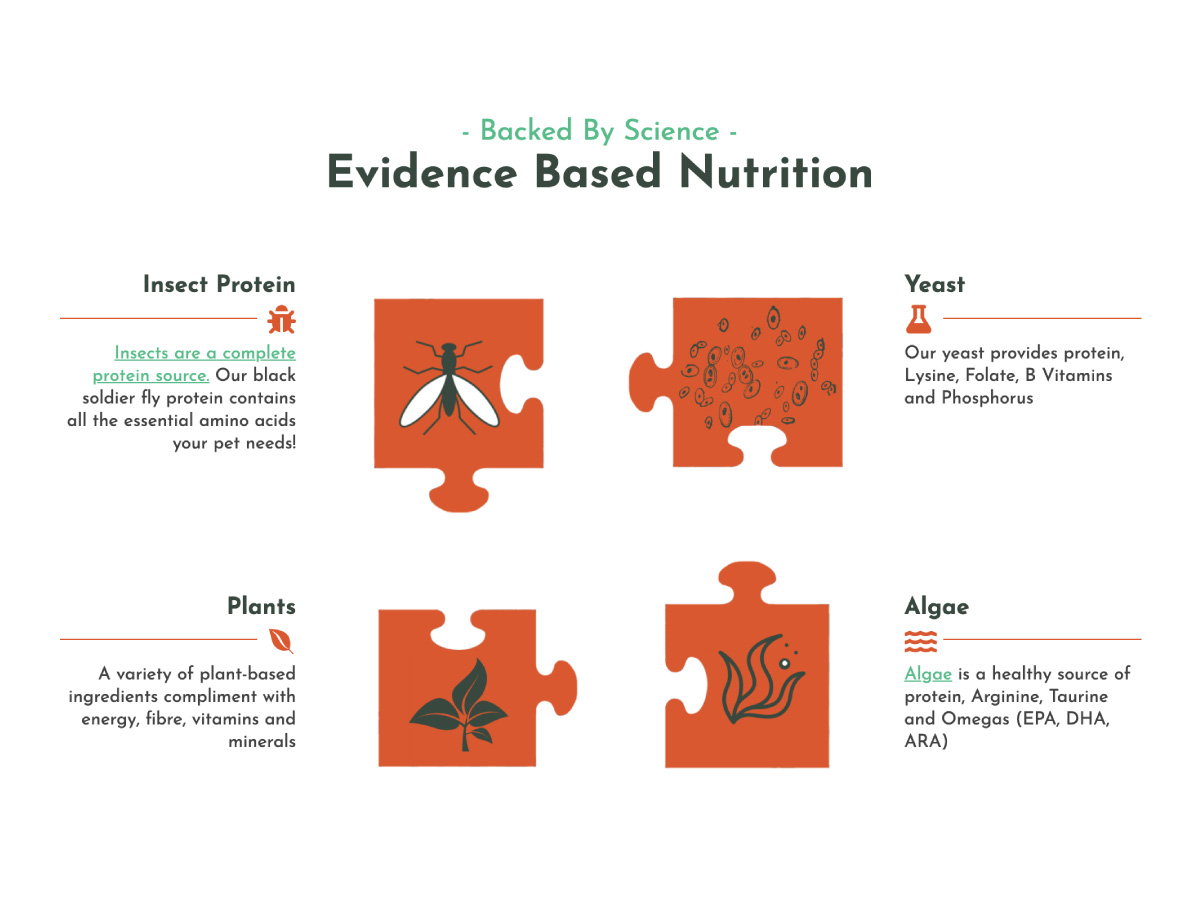
HOPE Pet Food
Agriculture and livestock are significant contributors to greenhouse gas emissions. The meat ingredients in pet food are part of the problem, especially as pet ownership continues to rise. 25% of all meat produced in North America goes into pet food – and pet food in North America currently creates more emissions than all of the cars in Canada.
HOPE Pet Food aims to reimagine the way pet food is made, by prioritizing both pet nutrition and sustainable production with their meat-free pet food products. HOPE Pet Food’s pet nutritionists have created high-quality pet food using alternative proteins and all-natural ingredients that don’t exacerbate the climate crisis – such as insect protein, algae, yeast and plant-based ingredients.
All Earthlings
All Earthlings is dedicated to improving the environmental impacts of fashion, food, and beauty sectors. Their main initiative, Sharkless, strives to raise awareness about the widespread use of shark liver oil (squalene) in cosmetic products, and the harmful effects this has on many species and ecosystems.
Read our last blog post for an in-depth look at All Earthlings with wisdom from founder Sarah Jay!

But wait, there's more! There are 7 other startups currently incubated at the Social Ventures Zone that are prioritizing sustainability – whether that's by using upcycled materials in their jewelry & accessories, helping other small businesses measure their environmental impact, or delivering ethically-raised meat right to your door!
Read our previous blog post to more about these amazing sustainable startups.
